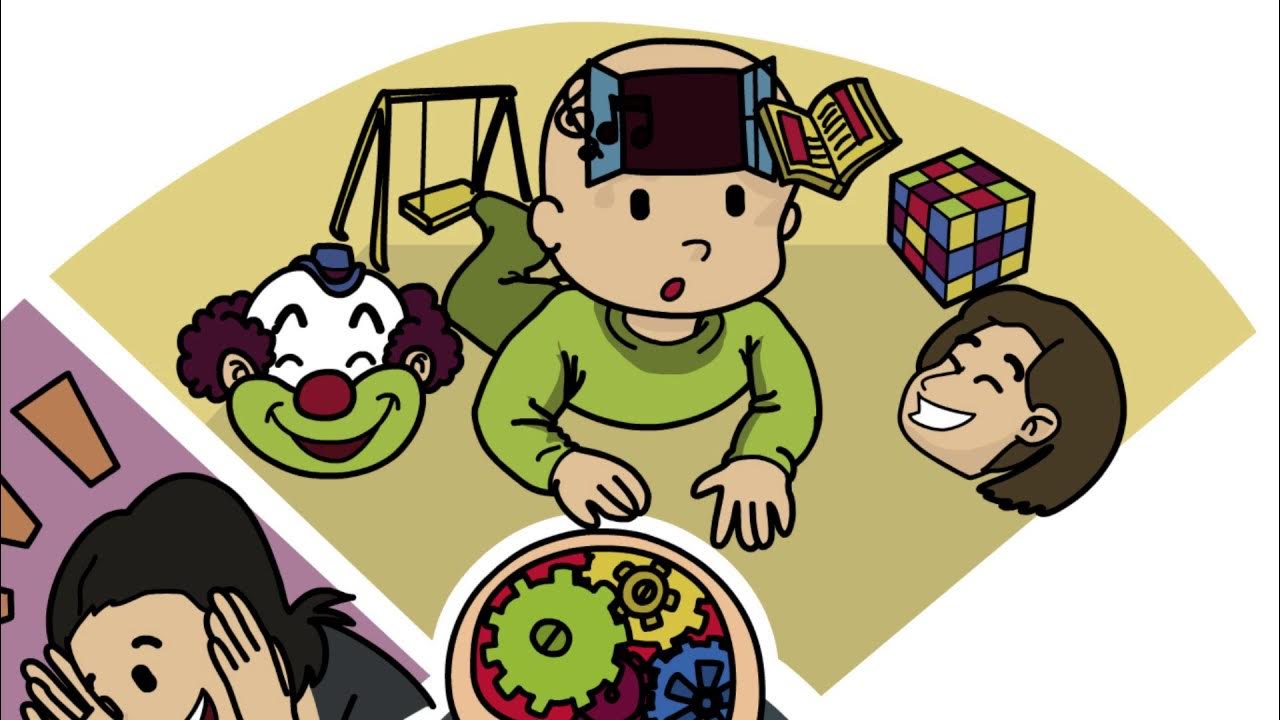Preventing Adverse Childhood Experiences (ACEs) Online Training Module 1 Lesson 1
Summary
TLDRThe video script discusses the critical nature of early childhood for brain development, where experiences shape neural pathways. It emphasizes the importance of nurturing environments for balanced brain growth and warns of the detrimental effects of toxic stress from adverse experiences like abuse or neglect. The script also highlights the brain's resilience and the potential for healing through therapy and support, advocating for preventive measures and services to mitigate the long-term impacts of early adversity on health and behavior.
Takeaways
- 🧠 Brain development is a lifelong process, but early childhood is the most critical period for its growth and adaptation.
- 🛤️ Experiences in childhood, both positive and negative, shape neural pathways that form the foundation for cognitive and behavioral functioning.
- 🏭 The brain's development can be likened to constructing a town's infrastructure, where repeated experiences strengthen and pave the 'roads' or neural connections.
- 🌱 A safe, stable, and nurturing environment is essential for healthy brain development, allowing children to learn and explore.
- 🚨 Excessive or prolonged exposure to adversity can lead to toxic stress, which can disrupt normal brain development and lead to lifelong issues.
- 🔌 Positive experiences help wire the brain for healthy development, while adverse ones can lead to a brain that anticipates a lack of support and safety.
- 🤯 Different types of stress impact individuals differently; toxic stress, in particular, can have long-term negative effects on brain and overall health.
- 🔄 The brain's response to stress involves a hormonal reaction designed to protect, but chronic activation can lead to developmental imbalances.
- 🚫 Children who experience toxic stress are at higher risk for a range of problems in adolescence and adulthood, including behavioral, emotional, and physical health issues.
- 🌟 The brain has the capacity to heal and change, and effective interventions can help mitigate the effects of early adversity and trauma.
- 🛡️ Preventing and addressing early adversity is crucial from a public health perspective, as it can significantly impact the health and well-being of individuals and populations.
Q & A
What is the most critical period for brain development, according to the script?
-Childhood, particularly early childhood, is identified as the most sensitive and critical period for brain development.
How do experiences influence brain development?
-Experiences, both positive and negative, stimulate the brain and form neural pathways, shaping cognitive and behavioral functioning throughout life.
What analogy is used to explain brain development in the script?
-Brain development is compared to laying out roadwork in a town. Experiences act as roads, and the more frequently an experience occurs, the stronger and more reinforced the 'road' or neural pathway becomes.
What role do safe, stable, and nurturing relationships play in brain development?
-These relationships and environments provide the foundation for healthy brain development by giving children ample opportunities to learn and explore, which stimulates balanced growth.
What is toxic stress, and how does it impact brain development?
-Toxic stress refers to prolonged exposure to adversities like abuse or neglect without adequate support. This disrupts brain development by keeping the stress response system overactivated, leading to long-term negative effects.
How does cortisol affect the brain in cases of prolonged stress?
-Cortisol, a hormone released during stress, has negative effects on brain and neurological development when produced constantly due to toxic stress.
What are some long-term consequences of early childhood adversity?
-Children who experience early adversity are at higher risk for behavioral problems, emotional difficulties, and physical health issues, including depression, anger management problems, heart disease, and more.
Can the brain heal from the effects of early adversity?
-Yes, the brain is capable of healing and changing. Effective treatments and therapy can help individuals affected by early adversity overcome trauma and learn healthier ways to respond to stress.
What is the public health significance of addressing early adversity?
-Reducing or eliminating early adversity has a profound impact on long-term health outcomes, including reducing the risk of chronic diseases, mental health issues, and infectious diseases.
What is the focus of lesson two mentioned in the script?
-Lesson two will cover the CDC-Kaiser Permanente Adverse Childhood Experiences (ACE) Study and its findings, which help inform efforts to prevent and treat adverse childhood experiences.
Outlines

Этот раздел доступен только подписчикам платных тарифов. Пожалуйста, перейдите на платный тариф для доступа.
Перейти на платный тарифMindmap

Этот раздел доступен только подписчикам платных тарифов. Пожалуйста, перейдите на платный тариф для доступа.
Перейти на платный тарифKeywords

Этот раздел доступен только подписчикам платных тарифов. Пожалуйста, перейдите на платный тариф для доступа.
Перейти на платный тарифHighlights

Этот раздел доступен только подписчикам платных тарифов. Пожалуйста, перейдите на платный тариф для доступа.
Перейти на платный тарифTranscripts

Этот раздел доступен только подписчикам платных тарифов. Пожалуйста, перейдите на платный тариф для доступа.
Перейти на платный тарифПосмотреть больше похожих видео

Early Childhood Education: The Research

InBrief: The Science of Early Childhood Development

Conceito & Ação - entrevista com a Dra. Carla Gikovate - Parte 1/2

Adverse Childhood Experiences (ACEs): Impact on brain, body and behaviour

Early in Life & the Importance of Early Childhood Education | Steve Zwolak | TEDxDelmarLoopED

O NEURODESENVOLVIMENTO INFANTIL
5.0 / 5 (0 votes)
